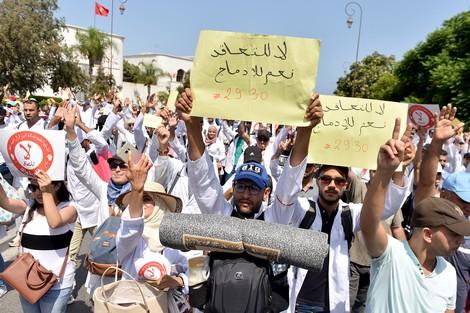Although the Minister of National Education, Vocational Training, Higher Education and Scientific Research excluded the option of a white school year due to the “contract professors” strike, administrative sources in the same ministry confirmed that this week will be the last chance to avoid the scenario of a white school year for the departments supervised by these professors.
And the administrative sources explained, in a statement to Hespress, that “in the event that the contracting professors continue their national strike until the end of the current month of April, it will be difficult for us to complete the lessons and take the exams because the year is about to end and we have only the months of May and June.”
Contrary to the government’s assurances regarding the restoration of the lost school time, the same sources revealed that “there are branches in the valleys in the kingdom’s provinces that are permanently closed and the solutions that the ministry talks about have not reached the limits of today,” adding that “based on the school time calculations, the continuation of the strike until next month. We are practically entering a white school year.”

The same data indicate that “educational institutions in Al-Bawadi are the most affected by the strike of academic staff, due to the fact that most of them are stationed there, which makes the catastrophic conditions in the sector far from the eyes of the press and officials.”
With the “contracting professors” clinging to their main demand, which is integration into the public service, the Minister of National Education, Vocational Training and Higher Education is facing a real test to persuade them to return to their departments during the dialogue session scheduled for tomorrow, Tuesday, and work to not repeat the failure of the first session.
Some regional academies of education and training had begun to take “prosthetic” solutions in public educational institutions; The regional directorate in the Rabat-Salé-Kenitra region sent a letter to the heads of educational institutions in order to take all appropriate measures to fill the shortfall resulting from the absence of contracted professors.
Among these solutions, giving priority to the schooling of the testimonial departments, transferring students from one school unit to another, making a temporary change to the educational structure, and reconsidering the temporal envelope and the rhythms of school time.
The official sources also called on the directors of educational institutions to open up to associations of mothers, fathers, parents of students, councils of dirt groups and civil society associations in order to provide some teachers, but the administrative sources that spoke to Hespress confirmed that the problem “can only be solved by a central decision because local officials do not have the powers to wide to face the crisis.
